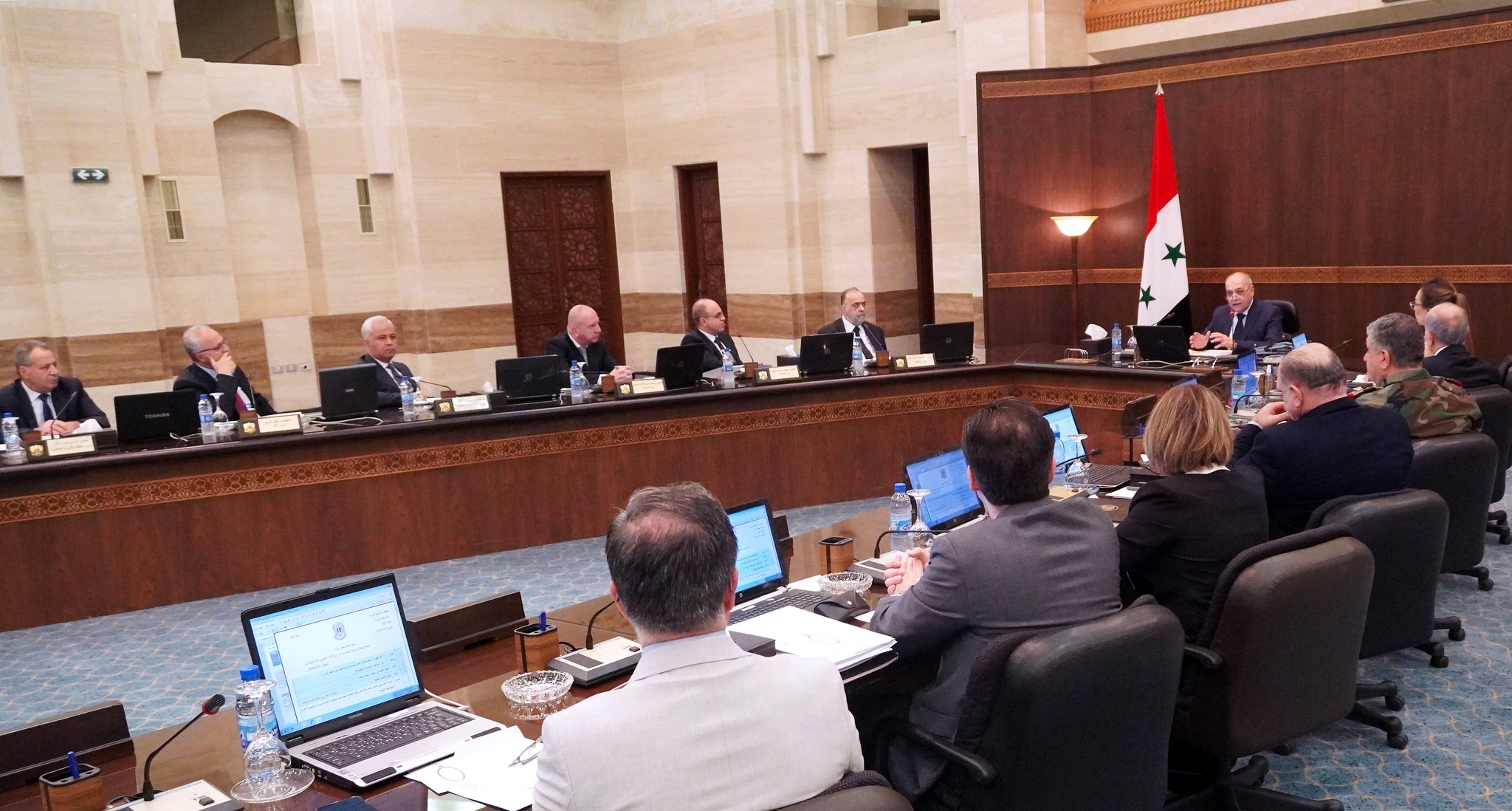Following Syria’s 2024 legislative elections, the resignation of Hussein Arnous’s government led to the appointment of Mohammad Ghazi al-Jalali as the new Prime Minister under Decree No. 223, issued by President Bashar al-Assad on September 14, 2024. The announcement of al-Jalali’s government came less than ten days later, on September 23. Al-Jalali, a former Minister of Communications (2014-2016), was not a prominent candidate but was a logical choice for Assad given his qualifications. Born in Damascus and a Sunni Muslim with roots in Quneitra province, al-Jalali meets the regime’s criteria for the position.
Al-Jalali’s appointment aligns with his active role within the Baath Party, where he was one of the 45 members appointed by Assad to the 125-member Baath Party Central Committee during the party’s congress in May 2024. Although he wasn’t initially part of the party’s central leadership, his position as head of the government now necessitates his involvement in leadership meetings, given the central role of the Baath Party in setting government policies.
Key Changes in Al-Jalali’s Government
Al-Jalali’s cabinet introduced only modest changes compared to the previous Arnous government. The number of ministers was reduced from 29 to 28, with the elimination of one minister of state. Thirteen new ministers were appointed for the first time, marking a slight shift in the composition of the government.
Notably, the number of ministers under foreign sanctions in the new government decreased compared to Arnous’s cabinet. This reduction is primarily due to the inclusion of new ministers who have not yet been targeted by international sanctions. Over time, it is expected that these ministers may be subjected to sanctions, as the EU, UK, and US often impose such measures after a period in office.
Baath Party’s Increased Share
The Baath Party’s influence in the new government has grown, securing 24 ministerial positions, including four ministers who are members of the party’s Central Committee. This increase in Baath’s share came at the expense of other parties within the National Progressive Front, which were allocated only non-sovereign or non-portfolio ministerial roles.
In terms of religious representation, Sunni participation in the cabinet has increased, while the number of Alawite and Christian ministers has decreased. Additionally, the cabinet saw a shift with the replacement of an Ismaili minister by a Druze Syrian. Gender representation in al-Jalali’s cabinet slightly declined, with only three women compared to four in Arnous’s administration.
Regional Distribution Shifts
Geographically, the new cabinet sees a shift in influence from Damascus to Rif Dimashq, with increased representation from Aleppo, Homs, and Quneitra, while representation from Hama, Latakia, and Idlib has decreased. The provinces of Daraa and Tartus maintained their previous representation levels. However, the Assad regime continues to exclude the eastern provinces entirely from ministerial positions.
The Role of Intelligence in Cabinet Formation
Although the 2012 Constitution grants President Assad the authority to nominate the Prime Minister and select the ministers, in reality, the process is heavily influenced by the General Intelligence Department’s al-Khatib branch (Branch 251). This branch, historically led by figures like Mohammad Nassif and Bahjat Suleiman, plays a crucial role in vetting candidates and aligning them with the strategic interests of Bashar al-Assad and the presidential palace. This hidden yet decisive influence underscores the regime’s tight control over the political landscape
This article was translated and edited by The Syrian Observer. The Syrian Observer has not verified the content of this story. Responsibility for the information and views set out in this article lies entirely with the author.


